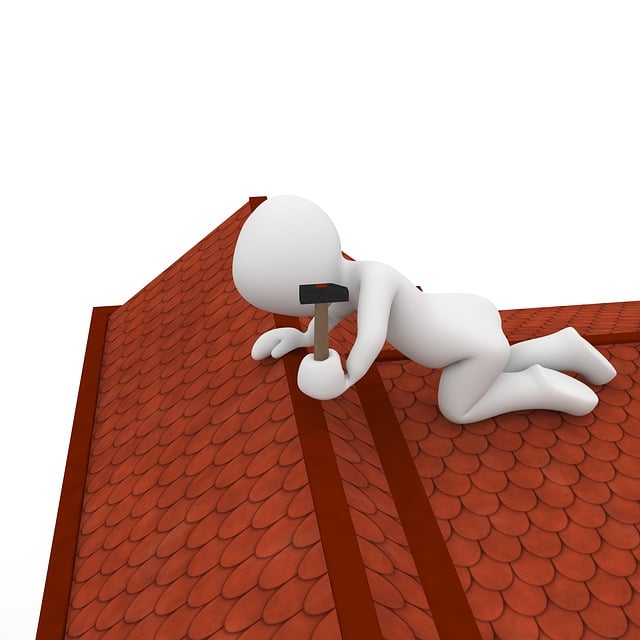Residential, commercial, and industrial properties all benefit from well-designed and maintained residential gutter systems. These systems protect buildings from rainwater damage by directing water away from foundations, preventing leaks, and enhancing structural integrity. Key features for modern gutter systems include adaptability to various roof types, robust materials, efficient drainage solutions, durability, accessibility for maintenance, and advanced features like leaf guards and sensors. Customized solutions cater to diverse needs, ensuring optimal performance and reducing the risk of costly water damage across all sectors.
In every property, from cozy homes to bustling commercial centers and industrial behemoths, effective drainage is non-negotiable. This article explores the residential gutter systems that form the backbone of property protection, delving into their crucial role in managing water flow across diverse sectors. We’ll uncover the unique challenges faced by commercial and industrial properties, highlighting the importance of tailored residential gutter systems solutions. Through key features and real-world case studies, we’ll demonstrate how compatibility across settings ensures robust protection for any environment.
Understanding Residential Gutter Systems: A Basic Guide
Residential gutter systems are a critical component of any home’s exterior, designed to direct rainwater away from the building’s foundation and key structural elements. These systems typically consist of gutters, downspouts, and a network of channels that collect and divert water. Understanding how they work is essential for homeowners, as it helps in maintaining the overall health of the property, preventing costly damage caused by water intrusion, and ensuring the longevity of the structure.
Gutters are usually installed along the roofline, capturing rainwater as it sheds from the rooftop. Downspouts, connected to the gutters, carry the collected water vertically downward, away from the house. This prevents water from pooling around the foundation, which can lead to cracks, seepage, and even structural instability over time. Effective gutter systems also include regular cleaning and maintenance to ensure they remain clear of debris, ensuring optimal water flow and protecting against potential clogs.
Commercial Properties and the Importance of Effective Drainage
Commercial properties, with their diverse and often demanding requirements, place unique demands on drainage systems. Effective drainage is more than just preventing water damage; it’s a crucial aspect of maintaining a safe, productive, and compliant workspace. Commercial buildings, from office complexes to retail spaces, often feature larger, more complex roofs that require robust residential gutter systems to manage significant rainfall. These systems need to be designed not only for efficiency but also for reliability, as any failure can disrupt operations and lead to costly repairs.
Moreover, commercial properties often have specific regulatory requirements related to drainage, especially in heavily populated areas. Properly installed and maintained residential gutter systems contribute to meeting these standards, ensuring that businesses operate within legal frameworks. By prioritizing effective drainage, commercial property managers and owners not only safeguard their investments but also enhance the overall value and appeal of their assets.
Industrial Applications: Robust Gutter Solutions for Harsh Environments
Industrial properties often face unique challenges when it comes to guttering, due to their harsh environments and demanding operational requirements. In these settings, a robust residential gutter system is essential for maintaining a safe and functional space. Specialized gutter solutions designed for industrial applications can withstand extreme weather conditions, heavy loads, and corrosive materials typically found in factories, warehouses, and manufacturing sites.
These systems are built to accommodate the specific needs of industrial operations, ensuring that water and debris are efficiently managed. They often feature sturdy materials like aluminum or stainless steel, along with advanced designs that enhance strength and durability. By investing in such robust gutter solutions, property owners can prevent costly damage caused by water leaks, corrosion, and blockages, common issues in challenging industrial environments.
Key Features to Ensure Compatibility Across Sectors
When designing or installing a gutter system, whether for a residential, commercial, or industrial property, compatibility across sectors is crucial. Key features that ensure this include adaptability to various roof types and structures, robust materials capable of enduring harsh weather conditions common in different settings, and efficient drainage solutions that can handle varying debris loads. For instance, a residential gutter system should be as lightweight yet durable as necessary to prevent damage during storms while accommodating the unique design elements often found in homes.
Additionally, the system must offer easy accessibility for maintenance and repairs, which is particularly important in commercial and industrial properties where operations depend on smooth running of gutter systems. Integrating advanced features such as leaf guards, downspout extenders, and smart sensors can further enhance compatibility by improving performance, reducing maintenance requirements, and ensuring optimal drainage across all property types.
Case Studies: Successful Gutter Installations in Diverse Settings
In diverse settings across various property types, successful gutter installations have become a testament to the versatility and effectiveness of well-designed residential gutter systems. For instance, in bustling urban centers where high-rise commercial buildings dominate the skyline, efficient rain management is paramount to prevent water damage and ensure structural integrity. Advanced gutter systems, equipped with features like robust materials, strategic placement, and integrated debris filters, have proven instrumental in navigating these challenging environments.
Similarly, industrial properties presenting unique challenges have benefited from tailored gutter solutions. Large-scale operations often require robust drainage systems to handle heavy rainfall and potential chemical runoff. Case studies demonstrate that customized residential gutter systems, engineered with durable components and extended spans, can effectively address these demands while seamlessly integrating into the overall facility design.
In conclusion, residential gutter systems play a vital role in maintaining property integrity while offering effective drainage solutions. For commercial and industrial properties, the need for robust and compatible guttering becomes even more critical due to unique challenges. Understanding these diverse applications and their specific requirements is key to ensuring successful installations that cater to each sector’s needs, as evidenced by the presented case studies. By incorporating key features designed for compatibility across residential, commercial, and industrial settings, property owners and managers can harness the power of efficient gutter systems tailored to their environments.
